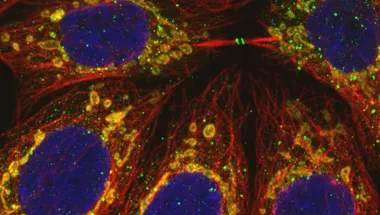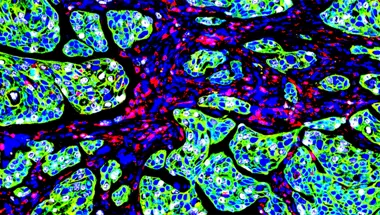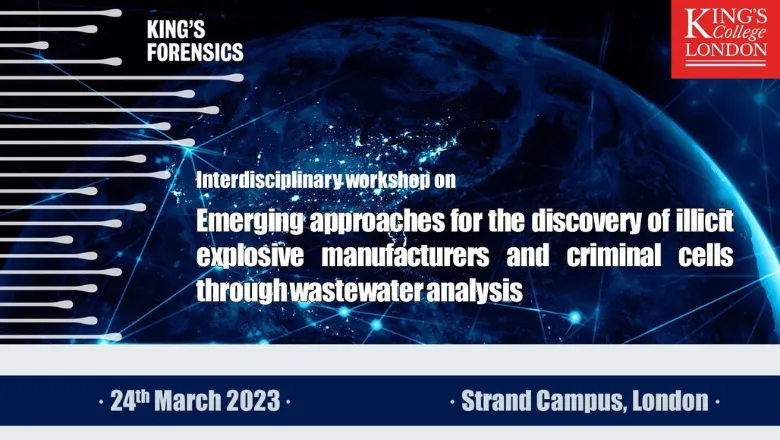
Dr Vincenzo Abbate
Reader in Bioanalysis
Research interests
- Forensics
Biography
Vincenzo Abbate obtained his Pharm. D in 2004 at Federico II University of Naples (Italy). He then completed a PhD in Chemistry and Analytical Sciences at The Open University (UK) in 2008. He was then awarded a prestigious Maplethorpe Fellowship of the University of London. He is currently a Reader in Bioanalysis at King's College London (UK), where he leads a group of ten researchers and is the Programme Director for the MSc in Analytical Toxicology. Dr Abbate is the President of the IUPAC Subcommittee on Toxicology and Risk Assessment. He is member of several societies such as the RSC, ACS, SOT, and TIAFT, and he is a Chartered Chemist (CChem) and Chartered Scientist (CSci). He is author/co‐author of more than 85 peer‐reviewed publications.
Research

Forensic & Analytical Science
Research in analytical and forensic toxicology and forensic investigations.

Anti-doping Science
The Drug Control Centre (DCC) is the only World Anti-Doping Agency (WADA) accredited laboratory in the UK

Lipids and Membranes Research Interest Group
A Lipids and Membranes Research Interest Group

Spatial Biology Network
The Spatial Biology Network is a cross-faculty research interest group that brings together researchers from various disciplines, ranging from technology development and molecular biology, to bioinformatics and clinical translational research, to explore the complexity of spatial biology.

The Multiscale Biofilm Research Hub (MBRH)
The Multiscale Biofilm Research Hub (MBRH) has been established to promote interdisciplinary interactions and focus microbial biofilm related research at King’s.

Antimicrobial resistance and biofilm therapeutics
Work involves understanding how biofilms contribute to antimicrobial resistance and the creation of new anti-biofilm therapeutics.
Project status: Ongoing

Synthetic biology and technological advancements
Biofilms are being studied to inspire the development of new materials and other technologies, and new approaches to probe biofilm formation.
Project status: Ongoing

Microbes in Health & Disease
The Microbes in Health & Diseases Research Interest Group aims to foster collaboration across departments and faculties at KCL to explore the multifaceted role microbes play in health and disease.
News
Thermo Fisher Scientific collaboration offers potential for faster, more efficient analysis of samples from drug toxicity patients
King’s Forensics researchers have received cutting edge equipment to help them carry out research into drug toxicity as part of a partnership between the...

Events

1-to-1 Session with Analytical Toxicology Programme Lead - Dr Vincenzo Abbate
1-to-1 Session with Analytical Toxicology Programme Lead
Please note: this event has passed.

Interdisciplinary workshop on emerging approaches for the discovery of illicit explosive manufacturers and criminal cells through wastewater analysis
Interdisciplinary workshop on emerging approaches for the discovery of illicit explosive manufacturers and criminal cells through wastewater analysis
Please note: this event has passed.
Lecturer in Analytical Toxicology
Research

Forensic & Analytical Science
Research in analytical and forensic toxicology and forensic investigations.

Anti-doping Science
The Drug Control Centre (DCC) is the only World Anti-Doping Agency (WADA) accredited laboratory in the UK

Lipids and Membranes Research Interest Group
A Lipids and Membranes Research Interest Group

Spatial Biology Network
The Spatial Biology Network is a cross-faculty research interest group that brings together researchers from various disciplines, ranging from technology development and molecular biology, to bioinformatics and clinical translational research, to explore the complexity of spatial biology.

The Multiscale Biofilm Research Hub (MBRH)
The Multiscale Biofilm Research Hub (MBRH) has been established to promote interdisciplinary interactions and focus microbial biofilm related research at King’s.

Antimicrobial resistance and biofilm therapeutics
Work involves understanding how biofilms contribute to antimicrobial resistance and the creation of new anti-biofilm therapeutics.
Project status: Ongoing

Synthetic biology and technological advancements
Biofilms are being studied to inspire the development of new materials and other technologies, and new approaches to probe biofilm formation.
Project status: Ongoing

Microbes in Health & Disease
The Microbes in Health & Diseases Research Interest Group aims to foster collaboration across departments and faculties at KCL to explore the multifaceted role microbes play in health and disease.
News
Thermo Fisher Scientific collaboration offers potential for faster, more efficient analysis of samples from drug toxicity patients
King’s Forensics researchers have received cutting edge equipment to help them carry out research into drug toxicity as part of a partnership between the...

Events

1-to-1 Session with Analytical Toxicology Programme Lead - Dr Vincenzo Abbate
1-to-1 Session with Analytical Toxicology Programme Lead
Please note: this event has passed.

Interdisciplinary workshop on emerging approaches for the discovery of illicit explosive manufacturers and criminal cells through wastewater analysis
Interdisciplinary workshop on emerging approaches for the discovery of illicit explosive manufacturers and criminal cells through wastewater analysis
Please note: this event has passed.
Lecturer in Analytical Toxicology
